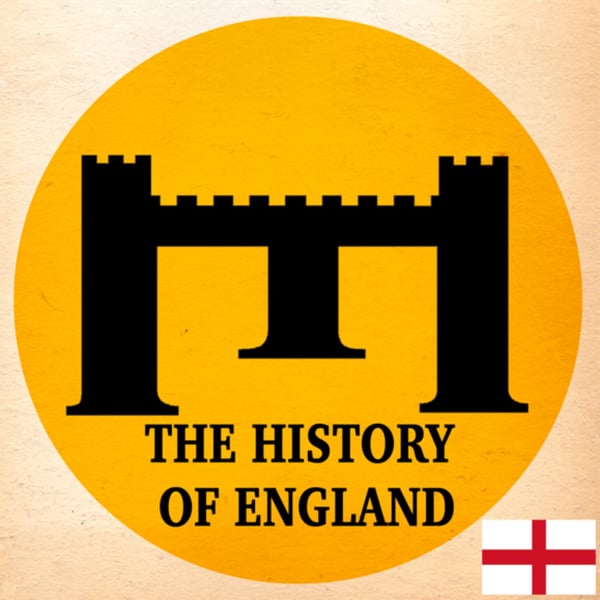AAG 1605-1615 The Fount of all Virtue
The History of England
David Crowther
4.8 • 5.9K Ratings
🗓️ 6 August 2023
⏱️ 44 minutes
🧾️ Download transcript
Summary
Hosted on Acast. See acast.com/privacy for more information.
Transcript
Click on a timestamp to play from that location
| 0:00.0 | Hello everyone and welcome to the History of England at a Gallop, font of all virtue. |
| 0:26.5 | This episode covers the same period as the detailed episodes, 329 to 335. At a Gallop is designed |
| 0:36.1 | for a couple of uses. You might want to take a faster, more summarised route through |
| 0:42.1 | the period, or you might want to use it as a refresher or a framework to help you sort |
| 0:47.2 | out the contents of the detailed episodes in your mind. If neither of what you want, then |
| 0:52.8 | you just don't have to listen to this, you can skip ahead. You may have found episodes |
| 0:56.7 | 329 to 335 just to your liking. But it's here if you want it. The world is your lobster. |
| 1:06.4 | In this at a Gallop episode, we are going to talk through some of the critical trends that |
| 1:10.9 | appearing James's reign, which lay the groundwork for later conflict in the reign of his son, |
| 1:16.4 | the growth of a public sphere of open political debate. The failure to agree a lasting financial |
| 1:23.6 | settlement for the crown, and a growing split between court and country. And some other |
| 1:29.9 | stuff too, but those are the big ones. Now then, James knew all about Parliament. He knew |
| 1:36.9 | exactly how to handle them and get the results he wanted. He knew that because he had |
| 1:42.0 | loads of them in Scotland, and he'd manage them all with enormous skill and got exactly |
| 1:46.3 | what he wanted. So, he was to come as something of a shock to him, that the English Parliament |
| 1:51.7 | turned out to be frustratingly and irritatingly difficult to control, and that they turn |
| 1:56.8 | out over the next 20 years of his reign to be well. Well, words escaped him, but could |
| 2:01.9 | he go for RC? There are a few reasons for this, the subject of today's episode, I suppose. |
| 2:09.6 | The first and simplest one was procedural. The Scottish Parliament was a unicameral composed |
| 2:15.8 | of three estates, Kirk, Nobility and Towns, who all sat together in one chamber. The Parliament |
| 2:23.7 | was a lot smaller, so there were fewer people to manage than in England, and voting tended |
| 2:28.5 | to follow very much the example of the few great magnates. So, lads tended to follow the |
... |
Please login to see the full transcript.
Disclaimer: The podcast and artwork embedded on this page are from David Crowther, and are the property of its owner and not affiliated with or endorsed by Tapesearch.
Generated transcripts are the property of David Crowther and are distributed freely under the Fair Use doctrine. Transcripts generated by Tapesearch are not guaranteed to be accurate.
Copyright © Tapesearch 2025.

